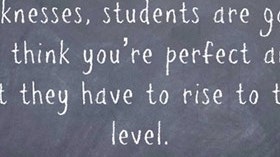Homepage
•
Learning Library
•
Blog
•
Is it OK for teachers to not know the answer?
Expand breadcrumbs
Expand breadcrumbs
- Learning Library
- Blog
- Is it OK for teachers to not know the answer?
- Homepage
- •
- Learning Library
- •
- Blog
- •
- Is it OK for teachers to not know the answer?
Is it OK for teachers to not know the answer?
By Nicole Krueger
April 21, 2014








